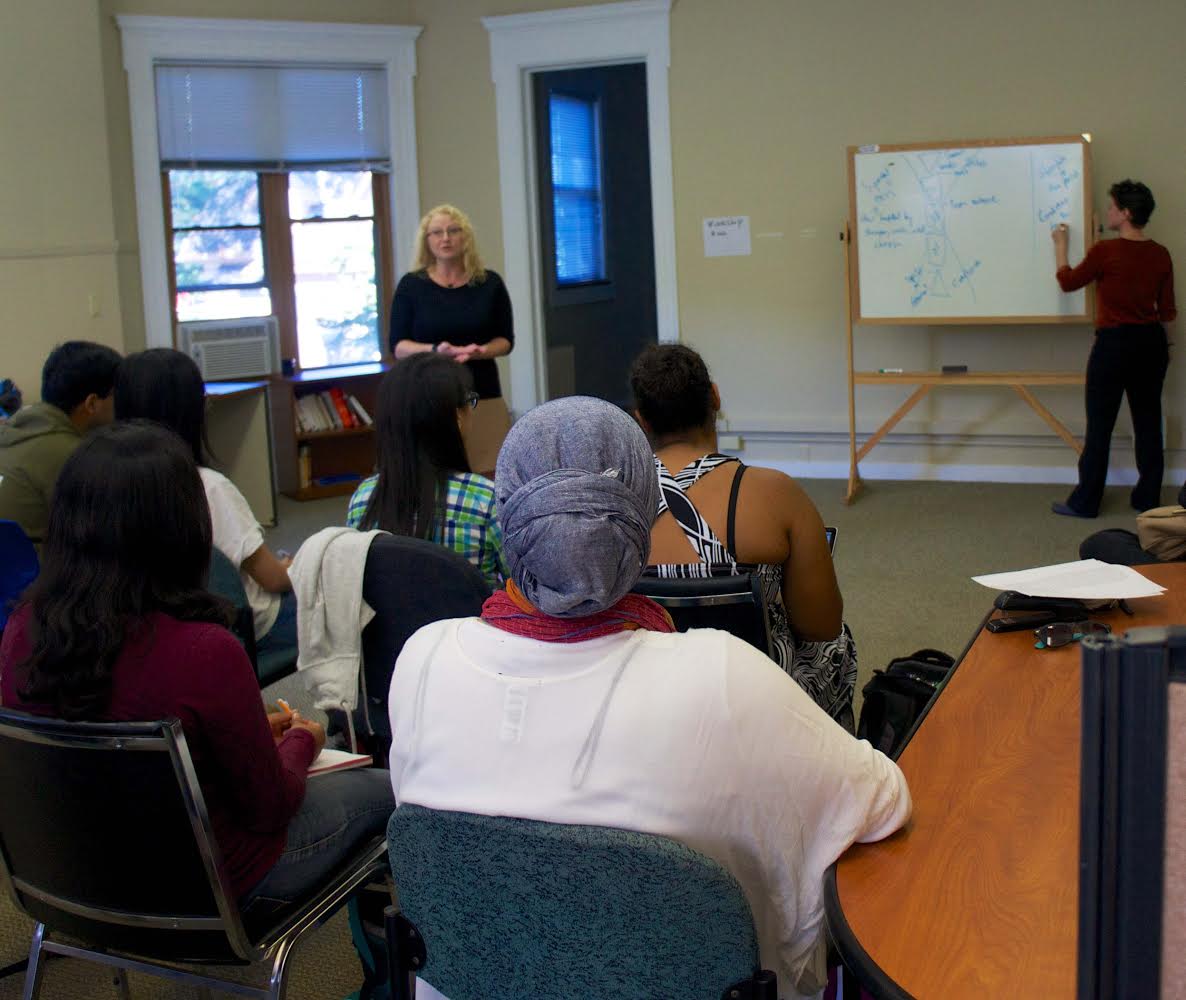Before the introduction of the Unified General Education Requirement (UGER) in the Fall of 2023, all first year students enrolled in a First Seminar. The seminar’s defining feature was its small size: with enrollment limited to 17 or fewer students, every First Seminar promoted active engagement and discussion, and allowed students to learn from one another, and offered a vigorous introduction to academic inquiry.
SAGES places an emphasis on writing. Most Case Western Reserve University students do not take a separate expository writing course, as writing instruction is integrated into the SAGES seminars. Students receive feedback on their writing from seminar leaders, classmates, and, on many courses, co-instructors who participate in all aspects of the seminar. There is a focus on summarizing and synthesizing complex scholarly arguments, responding to specific academic conversations, and improving personal writing techniques, including drafting, revising and editing. Students will complete assignments totaling at least 20 pages over the course of the semester.
The seminar leaders designed the courses they teach to reflect their personal areas of expertise, experience and enthusiasm. In addition to three hours of class time each week, First Seminars included Fourth Hour activities at the scientific and cultural institutions of University Circle and the Cleveland area.
First Seminar courses had course numbers that begin with FS, and you may see First Seminars referred to as FSEMs. There were Foundations and First Seminars for non-native speakers (Course Subject FSCC), as well as courses focusing on more specific topics. To help navigate, these are divided into three thematic areas: the Natural or Technological World (courses which started with the Subject FSNA), the Social World (FSSO) and the Symbolic World (FSSY).
The Learning Outcomes for the First Seminar are that by the end of the course, students should be able to: (1) Participate in an academic conversation by contributing insightful, relevant ideas. (2) Consider differences in values and assumptions to think critically and deliberate ethically. (3) Read, summarize, and apply scholarly concepts and information. (4) Write clearly and persuasively. (5) Effectively communicate information and ideas using a mixture of modes, including orally.
Learn more about the Fourth Hour
On to University Seminars


One thought on “First Seminar”